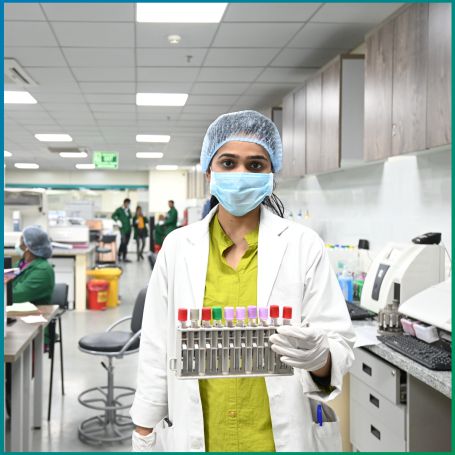
The Chlamydia trachomatis IgG antibody test pune is a blood test designed to detect antibodies produced by the immune system in response to a Chlamydia trachomatis infection.


Chlamydia trachomatis is a Gram-negative bacterium that infects the urogenital tract and can lead to various health problems, including pelvic inflammatory disease (PID), infertility, and increased susceptibility to HIV. The infection can be asymptomatic in many individuals, particularly in women, which often results in delayed diagnosis and treatment.
The primary purposes of the Chlamydia trachomatis IgG blood test Mumbai include:
1] Diagnosis of Past Infections: It helps determine if a person has had a previous infection with Chlamydia trachomatis.
2] Epidemiological Studies: The test can assist in understanding the prevalence of chlamydial infections in specific populations.
3] Monitoring Treatment Efficacy: In some cases, the test may be used to monitor the effectiveness of treatment for chlamydial infections.
The interpretation of the Chlamydia trachomatis IgG test results Mumbai is essential for determining the course of action:
1] Positive Result: A positive IgG result indicates that the person has been exposed to Chlamydia trachomatis in the past. However, it does not confirm an active infection.
2] Negative Result: A negative result suggests that the person has not been infected with Chlamydia trachomatis or has not developed an immune response.
If diagnosed with an active Chlamydia trachomatis infection, prompt treatment is crucial to prevent complications. Here’s an overview of available treatments:
1] Antibiotics: The primary treatment for chlamydial infections involves antibiotics. Commonly prescribed antibiotics include:
A] Azithromycin: A single-dose treatment.
B] Doxycycline: Usually taken twice daily for seven days.
2] Follow-up Testing: It’s important to have a follow-up test about three months after treatment to ensure that the infection has been cleared, especially if symptoms persist.
3] Sexual Partner Notification: All sexual partners should be notified and treated to prevent reinfection and further spread of the disease.
4] Preventive Measures: Safe sex practices, including the use of condoms, can help reduce the risk of contracting or spreading Chlamydia trachomatis.
You should choose Diagnopein for your Chlamydia Trachomatis- IgG Antibodies Test because we are committed to providing high-quality diagnostic care in a clean and hygienic environment. Our center is equipped with advanced technology to ensure accurate and reliable test results, which are crucial for assessing this test. Diagnopein’s experienced staff is dedicated to handling tests with precision and care, offering you both expertise and comfort. We also offer affordable pricing, making essential health diagnostics accessible without compromising quality. For timely, professional, and affordable cardiac testing, Diagnopein is your trusted partner for your healthcare.
No special preparation is typically needed before taking the test. However, it’s always best to consult with your healthcare provider for specific instructions.
Chlamydial infections are typically treated with antibiotics. Common options include azithromycin (single dose) and doxycycline (taken for seven days). It is essential to inform and treat sexual partners to prevent reinfection.
The blood draw is generally safe and has minimal risks. Some individuals may experience slight discomfort, bruising, or swelling at the site of the needle insertion.
The test involves a simple blood draw. A healthcare provider will collect a small sample of blood from a vein, usually in the arm. The sample is then sent to a laboratory for analysis.